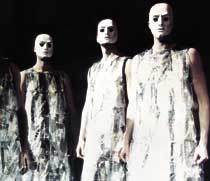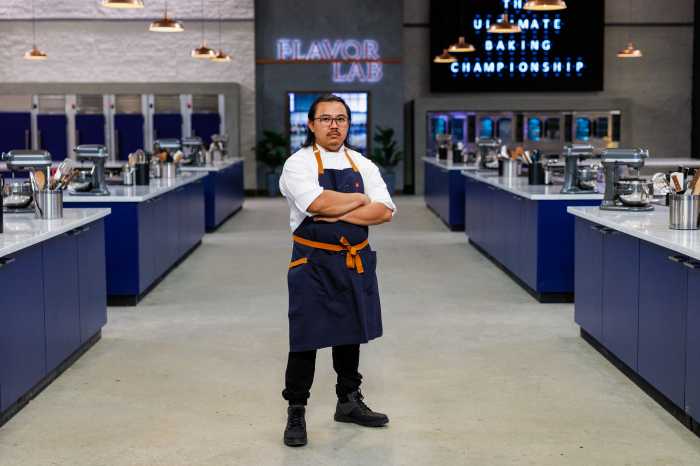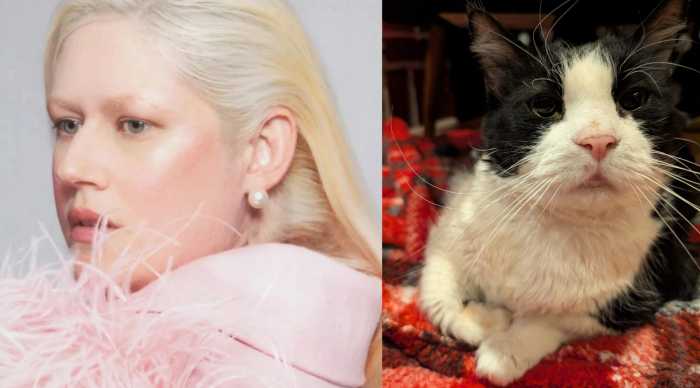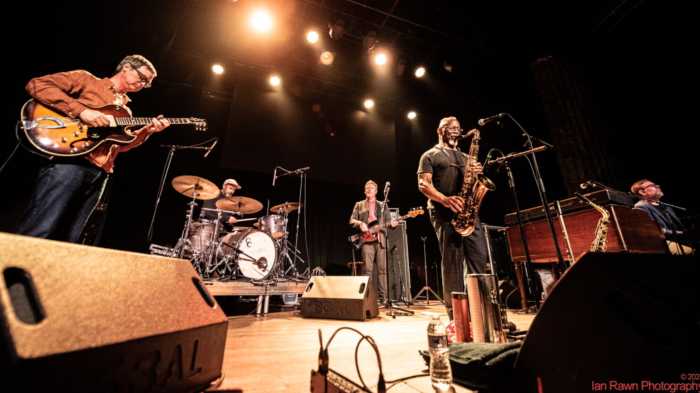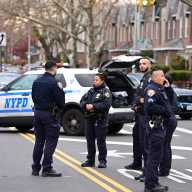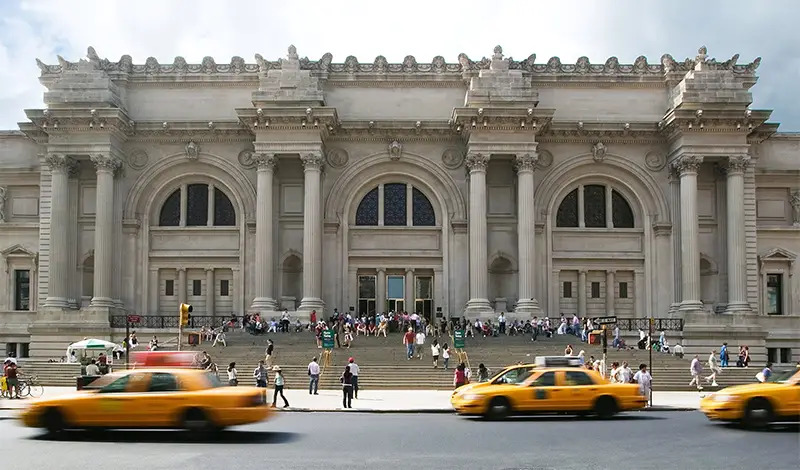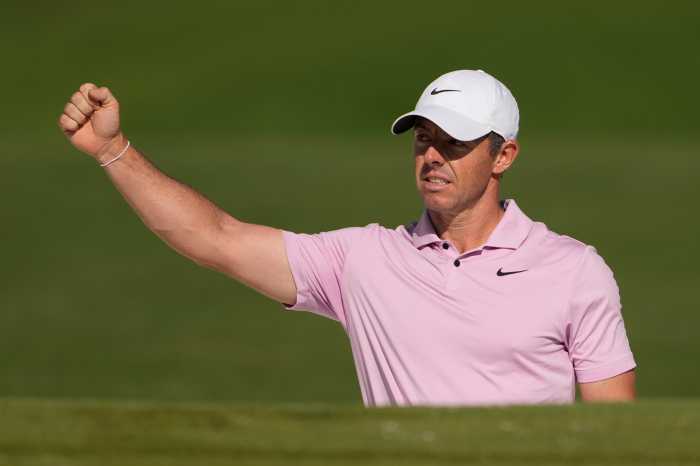George Frederick Handel composed more than
30 operas in 50 years, and so it is not surprising that, three
centuries later, a forgotten Handel opera would make a comeback.
Actually, "Siroe" received 18 public performances after
Handel composed it in 1728, but lore has it that the opera has
not been staged since. Now, in a production first seen in Venice
in 2000, Handel’s "Siroe" arrives at the Brooklyn Academy
of Music’s Harvey Theater April 17-24, for its United States
premiere.
"I don’t think this opera was done since it was written,"
said Jorge Lavelli, who directs the production that will be performed
by the Venice Baroque Orchestra under the baton of conductor
Andrea Marcon. "There might have been a radio production
in England at some point, but I’m pretty sure this is the first
’real’ production."
Lavelli, an Argentine director currently residing in France,
has staged operas and plays for three decades. Although he’s
built a substantial career in Europe, he has not directed in
America since his 1978 "Faust" at the Metropolitan
Opera. (Asked why, he shrugs and says, "I’m very busy."
)
Sitting down with GO Brooklyn and a translator in BAM’s offices
during a break in rehearsals last week, Lavelli discussed directing
in general, and opera and "Siroe" in particular.
"There are problems doing baroque operas because today it’s
difficult to make these stories work," Lavelli said.
Indeed, the formality of Handel’s operas would seem a monumental
handicap with modern audiences, but the music’s beauty, along
with the universality of these characters’ travails, have made
Handel the hottest opera composer around. (New York City Opera,
which schedules a Handel opera every season, is currently reviving
"Xerxes.")
"Siroe" follows the Persian prince of the title, heir
to the throne, who is in love with Princess Emira. She has disguised
herself as a man to avenge her father’s murder at the hands of
none other than Siroe’s father, the King of Persia. With a libretto
by eminent poet Pietro Metastasio, Handel’s "Siroe"
manages to resolve its many conflicts by avoiding the tragedy
it seems to be heading toward.
Lavelli described his approach to this tale: "It was originally
written to be performed in a place that should hold no more than
600 or 700 people. For our production, there was a small performance
space with the audience on each side of the performers and orchestra.
Since the audience surrounds the performers, they become participants
in the opera. It was an interesting experience for the audience,
actors and orchestra."
But staging "Siroe" at BAM, because of the BAM Harvey
Theater’s design, is not the same. Not better or worse, Lavelli
insists it is "just different."
"At BAM, you cannot separate the architecture of the space
from the performance, so we’ve redone this production especially
for [the Harvey Theater]. The interesting thing at BAM is that
it’s an open space and it’s not brand new, it has a lived-in
feel that I like. It’s not artificial at all, it’s simply stripped
bare.
"Everything starts with what is inside the actors-singers,"
he continued. "They act out, not just the story, but what
they feel inside, which is very important. But most important
is the text – Metastasio’s story is mostly about power, along
with love, and of course frustration. These elements jell to
make it a tragedy, and it’s very well-structured.
"So how can we stage this today, after 300 years? Well,
really nothing has changed – it’s seems to be permanent that
we have these dramatic conflicts."
Along with his extensive opera experience, Lavelli has staged
European versions of plays by luminaries like Tony Kushner, Brian
Friel and Arthur Schnitzler.
"When I start [to direct a play], it’s exactly the same
[as an opera]: I ask myself, ’How do I tell or re-imagine the
story within the space of the theater?’ But it ends there,"
said Lavelli.
"In opera, the conductor runs the show, and in the theater,
it’s the director who makes the decisions. The conductor can
decide to slow down or speed up the music. So the stage director
is at the conductor’s mercy, because there has to be the perfect
balance between the music we hear and the action we see,"
he said. "As long as I am in control of how the singers
are acting, then the words and music will take care of themselves."
Of course, two other people must be taken into account.
"There must be a perfect marriage between composer and librettist,"
said Lavelli. "When you’re looking at operas of the 20th
century, it’s very clear that in ’Lulu,’ ’Die Soldaten,’ or ’Pelleas
et Melisande,’ it’s a meeting between music and words. Often,
the text itself isn’t great. [Maurice] Maeterlinck’s text for
’Pelleas’ is old-fashioned, but Debussy made this strange world
fascinating and touching through his music. Handel, too, does
the same thing with Metastasio’s words."
Lavelli can’t yet answer whether he is enjoying his first trip
to Brooklyn.
"Right now, I go from the hotel to BAM for rehearsals and
back to the hotel every day, so I haven’t seen much else,"
he said with a laugh. "But I’m looking to discover the rest
of Brooklyn."
The Venice Baroque Orchestra’s production
of Handel’s "Siroe" will be performed April 17, 20,
23 and 24 at 7:30 pm in the Howard Gilman Opera House at the
Brooklyn Academy of Music’s Harvey Theater, 651 Fulton St. between
Ashland and Rockwell places in Fort Greene. Tickets are $30,
$55 and $80, and they can be purchased by calling BAM Ticket
Services at (718) 636-4100, or by visiting the Web site at www.bam.org.
A BAMdialogue with director Jorge Lavelli and conductor Andrea
Marcon will be held April 20 at 6 pm in the BAM Rose Cinemas,
30 Lafayette Ave. at Ashland Place in Fort Greene; tickets are
$8.


